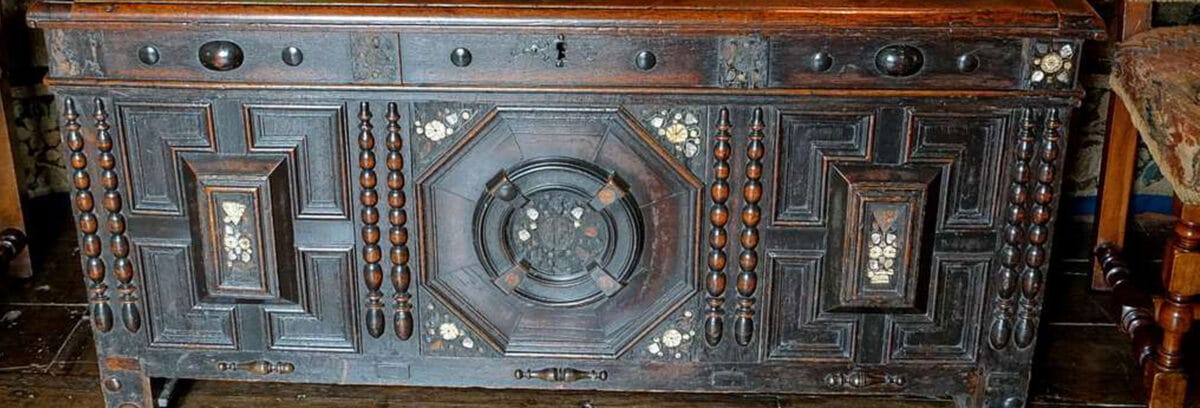Home » Antique Furniture Restoration »
17th-Century Furniture Restoration in Oxfordshire & Gloucestershire
Clive Payne provides 17th-century furniture restoration in Oxfordshire and Gloucestershire, offering a full conservation and restoration service.
The 17th century was a transformative period in the history of furniture design, marked by the opulence of Baroque art and the advent of new styles that reflected the socio-political changes of the era. Furniture from this period is characterised by intricate carvings, rich materials, and a blend of functionality and aesthetic appeal. Today, the restoration of 17th-century furniture is a delicate art that seeks to preserve the historical integrity while ensuring the pieces can be appreciated by future generations.
The Restoration Process
Restoring 17th-century furniture is a delicate balance of art and science. The process requires a deep understanding of historical methods and materials to ensure that restorations maintain the piece’s authenticity and integrity.
The first step in restoration is thorough research. Understanding the historical context, original construction techniques, and materials used is crucial. Documentation includes photographs, detailed descriptions, and sometimes even sketches of the furniture in its current state. Assessing the condition of the piece involves identifying areas of damage or deterioration, such as woodworm infestations, cracks, or missing components. Cleaning the furniture carefully with appropriate solvents helps to remove dirt and old finishes without harming the underlying materials.
Finding materials that match the original is one of the most challenging aspects of restoration. This includes sourcing wood of the same species and age, as well as matching finishes and decorative elements. For instance, replacing a missing veneer might require an aged walnut that matches the existing patina. Restorers use traditional woodworking techniques, such as hand-carving, veneering, and joinery, to repair and replace damaged parts. Modern tools are used sparingly, ensuring that the craftsmanship remains as close to the original as possible. This might involve using period-accurate tools or their modern equivalents that do not compromise the piece’s authenticity.
There is often a fine line between conservation (stabilising the piece to prevent further deterioration) and restoration (returning the piece to its original state). Ethical considerations guide these decisions, prioritising the preservation of the piece’s historical value. Sometimes, minimal intervention is preferred to maintain as much of the original material as possible. The final stage involves applying appropriate finishes to the restored piece. Traditional finishes like shellac or beeswax are often used to achieve an authentic look. These finishes not only enhance the appearance but also protect the wood.
Member of the British Antique Furniture Restorers Association (BAFRA)
The British Antique Furniture Restorers’ Association (BAFRA) is a nationwide organisation of skilled people engaged in furniture conservation, furniture repair and furniture restoration. Every BAFRA member is an expert in their field and is actively involved in Continual Professional Development to keep abreast of advances in knowledge, skills and technical developments.
Over the years Clive has developed the highest of standards in 17th century furniture restoration in Oxfordshire and Gloucestershire, joining the British Antique Furniture Restorers Association (BAFRA) in 1997 and now specialises in conserving and restoring oak and country furniture from the 15th to 18th centuries, together with all furniture from the early 18th to 19th centuries.
17th Century Furniture Restoration FAQs
To discuss 17th-century furniture restoration in Oxfordshire, 7th-century furniture restoration in Gloucestershire, or any other aspect of an item of furniture that you might wish to bring back to its full glory please do not hesitate to contact me. All restoration work is done entirely by hand using traditional techniques.
Call 01608 658856 or click the button below to make an enquiry.

